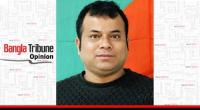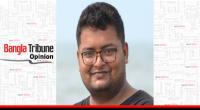 An election is not just an ingredient of democracy, but it is predominant requisite among others. Elections are held in certain period to consolidate democracy, and protection of democracy depends on free, fair and participatory elections.
An election is not just an ingredient of democracy, but it is predominant requisite among others. Elections are held in certain period to consolidate democracy, and protection of democracy depends on free, fair and participatory elections.
Democracy is strengthened by the infusion of inclusive elections held regularly under the law of the land. Through the long tradition of elections in developed countries, the election system had to be reformed through revolution or evolution until it finally reached the present position.
The weaker the election system, the more fragile are the democratic institutions. The electoral procedure, therefore, needs to be addressed so that democratic process keeps on the right track. Where strong democracy was achieved through the years of long struggle, people gradually won the universal franchise, ensured basic rights of the people, the right to protection of life and property of individuals.
The word ‘election’ has been known to Bangladeshis from the colonial era. We have learned about modern electoral procedure, electioneering, casting votes, ballot boxes, ballot papers, polling centres, voting age, eligibility of voters, etc. from back then.
After World War II, the newly independent countries and politicians who wanted to make their state’s democracy functional, made their election commission independent and strong, so it could discharge its duties freely and independently.
Since independence, our democracy has been missing at times, or decaying in the hands of a demagogue or authoritarian ruler. Outrageous one-party rule had prompted the collapse of democratic institutions in Bangladesh. The Election Commission becomes a puppet in the hands of the government, no matter whatever the provisions are stipulated in the constitution.
By law, the election commission is an independent organisation which conducts different tiers of election (from presidential to Union council polls) throughout the country, armed with their logistics and workforce. It is distinctly written in Article 118 (4) of the Constitution, “The election commission shall be independent in the exercise of its functions and subject only to this constitution and any other law.”
If an authoritarian government wants to stay in power forever, then the commission will never able to maintain their independence, no matter whoever is appointed.
Independence of the Election Commission is an abstract notion until it works freely, without the influence of the ruling party.
Under the autocratic government, holding a free, fair election is a far cry. The reasons are, i) As EC officials are nominated by the merit of their loyalty, they can be manipulated by the ruling party; ii) The election commission's neutral and impartial role could be ensured if the chief election commissioner along with the other commissioners’ sense of independence really works. But a power-hungry ruling party will never give absolute authority to the EC, because they can manipulate and twist the election results. The government without mandate feels apprehensive and shaky about the actual public opinion.
Undoubtedly, the recently held KCC (Khulna City Corporation) polls exposed the vulnerability of the election commission. The EC kept silent, an onlooker of the ‘new model’ and dimension of the election system.
The EC has set an unprecedented record of being a puppet in the hands of the ruling party. It emanated a bad signal in the run-up to the upcoming elections. Law enforcers, especially the police, played the KCC election field alone and turned it into a wasteland.
On the eve of the voting, indiscriminate arrests and raids on houses of activists and supporters of the opposition party were conducted continuously. The police behaved aggressively with the voters. The police aided and abetted hooligans of the ruling party cadres who drove out male and female polling agents of the political opposition from the polling centres and vandalised the polling booths on voting day. A father along with his seven-year-old son cast their votes together! These are the unique pictures of rigging an election which the people of Bangladesh have had to see.
To be brief, democracy can't sustain without free, fair and transparent elections. Transparent and participatory elections lift high the democratic spirit in the hearts of the people. Throughout the world, new democracies will be set back by any futile attempts or irregularities of the state machinery. Democracy and elections remain an indivisible entity, as they go hand in hand.
Rizvi Ahmed is the Senior Joint Secretary General of the BNP.


